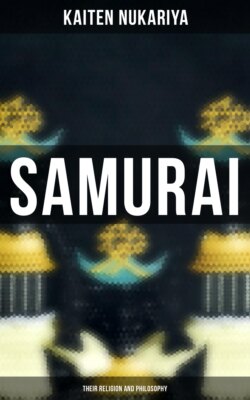Читать книгу Samurai: Their Religion and Philosophy - Kaiten Nukariya - Страница 12
На сайте Литреса книга снята с продажи.
8. The Fifth and the Sixth Patriarchs.
ОглавлениеTao Sin transmitted the Law to Hung Jan (Ko-nin), who being educated from infancy, distinguished himself as the Abbot of the Hwang Mei Monastery at Ki Cheu. The Fifth Patriarch, according to his biographer, gathered about him seven hundred pupils, who came from all quarters. Of these seven hundred pupils the venerable Shang Sin (Jin-shu) was most noted for his learning and virtues, and he might have become the legitimate successor of Hung Jan, had not the Kachaya of Bodhidharma been carried away by a poor farmer's son of Sin Cheu. Hwui Nang, the Sixth Patriarch, seems to have been born a Zen teacher. The spiritual light of Buddha first flashed in his mind when he happened to hear a monk reciting a sutra. On questioning the monk, be learned that the book was Vajracchedika-prajnya-paramita-sutra,42 and that Hung Jan, the Abbot of the Hwang Mei Monastery, was used to make his disciples recite the book that it might help them in their spiritual discipline. Hereupon he made up his mind to practise Zen, and called on Hung Jan at the Monastery. "Who are you," demanded the Fifth Patriarch, "and whence have you come?" "I am a son of the farmer," replied the man, "of Sin Cheu in the South of Ta Yu Ling." "What has brought you here?" asked the master again. "I have no other purpose than to attain to Buddhahood," answered the man. "O, you, people of the South," exclaimed the patriarch, "you are not endowed with the nature of Buddha." "There may be some difference between the Southern and the Northern people," objected the man, "but how could you distinguish one from the other as to the nature of Buddha?" The teacher recognized a genius in the man, but he did not admit the promising newcomer into the order, so Hwui Nang had to stay in the Monastery for eight months as a pounder of rice in order to qualify himself to be a Zen teacher.
